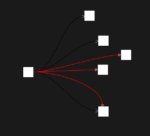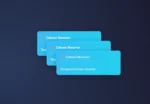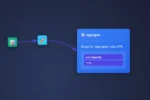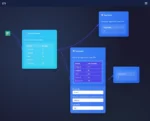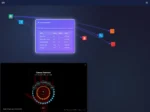In a rapidly evolving technological landscape, software engineering professionals looking to bolster their skill set and amplify their career potential increasingly consider transitioning into data engineering. Fueled by the exponential growth of data-driven decision-making across industries, data engineering offers compelling opportunities to make a tangible business impact. This journey from software engineering—an already intricate and rewarding discipline—to the ever-dynamic and strategically essential realm of data engineering unlocks innovative career opportunities, positioned on the cutting edge of analytics, performance optimization, and real-time insights. Leveraging existing expertise in software development serves as a robust foundation in making this transition, yet engineers must also strategically acquire specialized data-centric skills. As a trusted advisor with extensive experience in data engineering consulting services, we’re here to guide your strategic leap, ensuring you transition confidently and effectively, unlocking technology’s power to maximize enterprise value.
Understanding the Shift: Why Transition to Data Engineering?
The move from software engineering to data engineering is more than just career alignment; it reflects a broader strategic shift emerging in industries worldwide. Organizations increasingly leverage data to identify profound insights shaping business strategy, operational efficiency, and customer engagement. Data engineers form the backbone of any company’s analytics-driven initiatives—they build the robust data pipelines and innovative, real-time data integrations that power AI, business intelligence, and analytics platforms.
Compared to traditional software roles focused largely on application functionality, user experience, and user interface, data engineering introduces an intriguing new dimension—dealing directly with how data moves, transforms, and integrates across platforms. In essence, data engineers ensure data reliability, scalability, and observability within increasingly complex ecosystems, creating direct downstream impacts on business decisions and market success. Notably, techniques like driving collaboration to enhance database systems’ reliability and performance become paramount, firmly placing data engineers as influential technical strategists.
As businesses embark on digital transformation—going beyond merely software efficiency toward harnessing real-time insights—professionals transitioning to data engineering can align themselves with critical company initiatives, demonstrating measurable value and potential leadership growth within technology organizations.
Essential Skillsets: Bridging Software Engineering and Data Engineering
The transition from software engineering to data engineering is surprisingly complementary and feasible. Software engineers already possess extensive knowledge in coding, debugging, and deploying scalable systems. However, data engineering involves a specialized shift, requiring engineers to embrace data modeling, pipeline workflows, and substantial skills in data management technology stacks, such as Apache Kafka, Apache Spark, and cloud-based warehousing solutions like AWS Redshift, Google BigQuery, or Snowflake.
SQL, already a staple skill among software engineers, gains even greater strategic importance in data engineering roles. Deepening one’s expertise in advanced SQL functionalities—thoroughly understanding subqueries, common table expressions, and advanced joins—becomes critical. A resource we recommend is our detailed guide, Demystifying The FROM Clause in SQL, which will rapidly expand your capability in managing large-scale relational data more effectively.
Furthermore, understanding the optimization of Extract, Transform, and Load (ETL) processes is central to data engineering projects. It’s advisable to explore different approaches by reviewing our article, A Comparison of Open-Source and Commercial ETL Solutions. Additionally, proficiency in cloud infrastructure, containerization, orchestration tools, and proficiency with scripting languages like Python positions software engineers particularly well to grasp and excel at these new parameters of the transition into successful data engineers.
Key Responsibilities: From Application Code to Data Pipelines
With professional shift comes role recalibration: as software engineers primarily contribute to building applications and software features, transitioning to data engineering implies shifting primary attention toward building integrated, automated, resilient, and scalable data pipelines. These pipelines become the robust arteries feeding essential data to analytics dashboards, business intelligence reporting, machine learning algorithms, and effectively enabling stakeholders across the company to make strategic, well-informed data-driven decisions.
Beyond simply extracting data from various sources and delivering structured outputs, data engineers focus on establishing and continuously optimizing pipeline reliability, performance, and observability, ensuring these platforms accommodate growth and adapt to rapidly changing data environments. Furthermore, embracing additional tools like Apache Airflow, Databricks, and Kafka significantly enhances pipeline orchestration and real-time data movement.
Another core responsibility is ensuring that companies harness real-time insights through innovative mechanisms such as real-time messaging, presence indicators, or streaming data integration. We explore this detailed strategic approach in Real-Time Presence Indicators to Improve Apps, demonstrating how cutting-edge data engineering deeply impacts user experience, operational efficiency, and overall competitiveness.
Tackling Challenges: Overcoming Obstacles During the Career Transition
As promising as the transition to data engineering appears, software engineers must strategically anticipate challenges intrinsic to this major shift. One frequent hurdle is the shift in work patterns and priorities—from a typical software development sprint cycle to data pipeline monitoring, maintenance, long-term resilience, and cross-functional collaboration with data scientists, analysts, and business leadership. Furthermore, dealing with legacy platforms, outdated database infrastructure, or complex integration scenarios could become serious roadblocks during early transition stages.
One strategic way to circumvent potential pitfalls is to judiciously leverage external expertise from established data engineering consulting companies. Investing in seasoned professionals rather than resorting to inadequate trial-and-error can significantly ease transitional complexities. As we emphasize in our blog, Consultants Aren’t Expensive, Rebuilding it Twice Is, engaging experienced consultants ensures project success the first time, saving significant time, resources, and budget.
Additionally, carefully designing data visualization strategies enhances usability at the data consumption end—helping stakeholders quickly interpret critical insights. We explore key aspects of this approach in our piece, The Role of Color in Data Visualization; understanding these considerations equips transitioning software engineers to deliver compelling, clear, and actionable data narratives.
Your Roadmap: Strategically Charting the Career Transition Pathway
A decisive step to successful career transitioning from software engineering to data engineering includes a clearly defined, strategically delineated roadmap. Begin with skills-gap analysis, delving into existing competencies and deducting additional specialized training or certification required. Emphasizing practical and experiential learning—such as working with large-scale cloud data solutions, data warehouse deployments, or open-source ETL tools—adds immediate value to your skillset.
Professional collaboration and proactive networking with experienced data engineering peers, exploring structured mentor relationships, and actively participating in professional data-focused communities amplify your capabilities and confidence. Engaging a trusted consultant partner enhances this process, providing in-depth, customized training, strategic problem-solving guidance, transitional advisory services, and actual implementation demonstrating tangible progress and accelerated efficacy.
Above all, maintain an innovative, growth-oriented mindset throughout this transition. Embrace challenges as opportunities rather than setbacks, keeping focused on gaining niche mastery in data engineering. Organizations tactically seek professionals who skillfully bridge software development knowledge and data engineering proficiency; the unique intersectional perspective you gain positions you to become not merely a practitioner alone—but also a trusted technological advisor within your professional circles.
Empowering Your Next Career Move
Transitioning from software engineering to data engineering represents a strategic enhancement of your tech career—equipping you to deliver high-value solutions within a data-centric market comprehensive of innovative technologies. If you’re considering making the strategic jump, leveraging experts like our data engineering consulting team can streamline your effort, ensuring your transition provides maximum impact while thoughtfully minimizing risk.
Your journey toward becoming a successful data engineer is about seizing strategic opportunities to fulfill career aspirations, align competencies with emerging market demand, and confidently succeed across coherent integration of technology, analytics, and innovation.
Tags: Career Transition, Software Engineering, Data Engineering, SQL, ETL Pipelines, Professional Development


